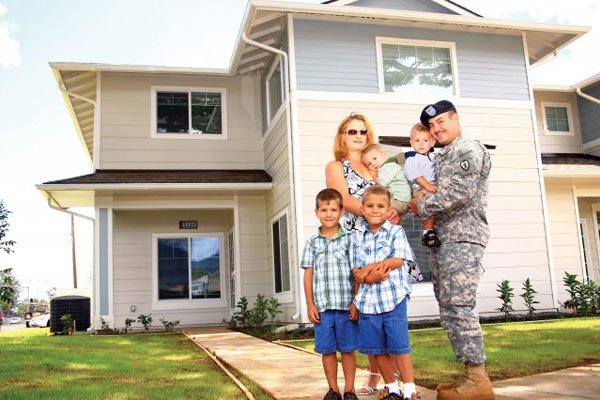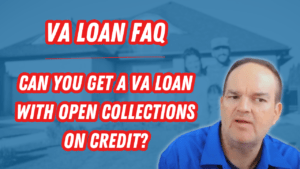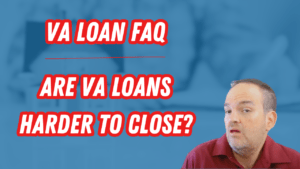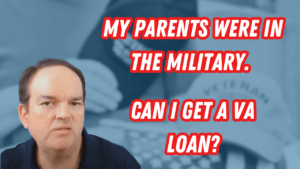If you are a veteran and thinking about buying a home, one of the first things you may be wondering is:
“How Much Are The Closing Costs For A VA Mortgage Loan in Ohio?”
In this post, I’ll tell you a bit about how much you can expect to pay for closing costs of a VA Mortgage loan in Ohio and a breakdown of what those fees are.
Expect to pay between 2% and 4% of the purchase price for closing costs (before the funding fee) for a VA Mortgage Loan in Ohio.
This varies a bit by the lender guidelines and your credit situation.
Here are some of the fees that you will encounter as you apply for the VA mortgage loan.
Origination Fee
Some lenders charge an origination fee to process and underwrite your VA mortgage loan. The lender is allowed to charge up to 1% of the loan amount.
Side note….
at Epoch Lending, our company charges no origination fees!

Line Item or “Non Allowable” Fees
If the lender does not charge an origination fee, they may charge individual line item fees to get reimbursed for the costs associated with the loan application. The lender can’t charge line item fees and an origination fee.
It’s either-or!
The VA calls the line item fees “non allowable” fees which is a bit confusing.
Line item fees are definitely allowed, just not at the same time as the origination fee!
Credit Report Fee
The credit reporting fee is a line item fee that covers the cost of obtaining a credit report and is typically between $40-$75.
Flood Certification Fee
This is a line item fee paid to a third party to certify that the home is not in a flood zone and runs between $25-$40.

Terminix is one of many companies that offers pest inspections.
Pest Inspection Fee
This is a line item fee for a pest inspection to certify that there are no termites on the property and there is no termite damage. It typically runs between $40-$100.
Many Realtors will put a clause in the contract requiring the seller to pay the pest inspection fee thinking that it’s a requirement for VA financing.
You may be wondering “Is the veteran allowed to pay the pest inspection fee on a VA mortgage?”
Yes, the veteran is allowed to pay the pest inspection fee if no origination fee is charged.
There is no rule from the VA nor are there any Ohio real estate laws stating that the seller has to pay the pest inspection fee.
If there is no origination fee on the loan, then the veteran can elect to pay for the pest inspection instead of the seller.
Appraisal Fee
For every VA Mortgage loan for a purchase, an appraisal will be needed. A VA appraisal in Ohio typically costs around $525.
Title Search and Closing Fees
Title fees are
required for any VA mortgage loan. These fees cover the cost of a title search, the closing, and the document preparation. Title company fees are between $700-$900.
Title Insurance Fees
A lender’s title policy is also required. This policy insures that there are no issues with the deed to the home and covers the lender if there are any mistakes with the title. A title policy typically starts at about $300 (one time) and can go up to thousands of dollars on a high end home.
The homebuyer can also get a title policy as well to insure that they have clear title. This is optional in Ohio and also starts at about $300.

Filing Fee
Filing fees are charged by the County Recorder’s office to file the mortgage and deed after the mortgage loan is closed. In Ohio, these fees range from $250 to $350. Additionally, the title company may charge a courier fee of between $20 and $50 to submit the deed to the County Recorder.
Transfer Tax
Ohio requires a property transfer tax on any real estate transaction. The transfer tax is based on the price of the home. In most Ohio counties, you can expect to pay between $300 and $1000 for transfer tax.
Funding Fee
The funding fee is a one time mortgage insurance fee from the VA that covers the lender in case of foreclosure. It’s the VA’s equivalent of PMI on a Conventional mortgage or MIP on a FHA mortgage.
The funding fee is typically added on top of the loan amount, but you can elect to pay the funding fee at closing or have the seller pay it.
The amount of the funding fee varies depending on whether or not you are making a down payment and if it’s first time use.
For zero down non exempt veteran homebuyers in 2019, this fee is 2.15% percent for current or former active duty and 2.4% for reservists. This will change in 2020 to 2.3% for everyone.
However, the funding fee only applies when you are not collecting service related disability payments.
If you have a disability rating of 10% or higher, then the funding fee is waived.
Prepaid Property Taxes and Insurance
When purchasing a home with any mortgage type, you will be required to place the taxes and insurance into an escrow account.
The escrow account will need to be funded at closing and then a monthly amount will be added to the account every month to insure that there is enough money to cover the property taxes and homeowner’s insurance.
The amount needed for prepaid taxes and insurance varies based on the amount that is owed. As a homebuyer, it’s important to get an accurate quote for the property taxes and insurance before an offer is made so you can be sure that you can afford it.
Discount Points
Discount points are a prepaid interest charge paid to the lender to get you a lower interest rate. They may or may not be required depending on your credit situation.

How To Get Seller to Contribute Toward Closing Costs
When purchasing a home using VA mortgage financing, you are allowed to ask the seller to contribute toward the closing costs. By having the seller contribute toward closing costs, you can reduce the amount of money that you would need to bring to the closing.
If done properly, you can have a true no-no closing which is one with no money down and no money due at closing!
The Realtor needs to list the amount of seller contributions in the contract and coordinate the amount needed with your loan officer.
Keep in mind that there are some limitations as to how much can be requested for seller contributions.
The VA has set guidelines of how much the seller can contribute. These rules can be found in
Chapter 8 of the VA Handbook.
Many Realtors and rookie loan officers mess up seller contributions, thinking that there is a 4% cap. That’s not true!
For any charge that customarily allowed on the loan such as title, appraisal, origination, etc. there is no limit as to how much the seller can contribute toward closing costs.
For other fees, such as prepayment of the buyer’s taxes and insurance, payment of extra points for a rate buydown or the payment of the funding fee, then a 4% limit applies.
Conclusion
As you can see, there are a lot of costs to consider when using VA Mortgage financing. But, as you dig into the program you will discover that this is one of the best mortgage programs around.
As always, if you have any questions, please do not hesitate to contact me at 937-572-3713 or
cscarpero@epochlending.com. 







